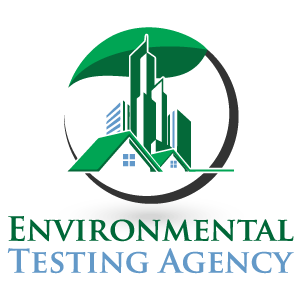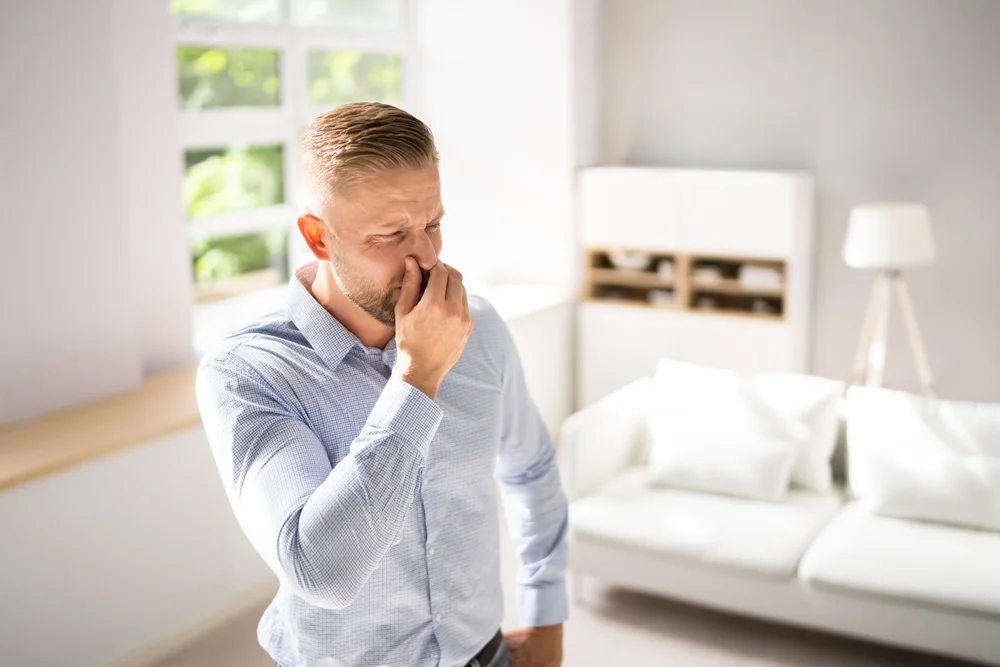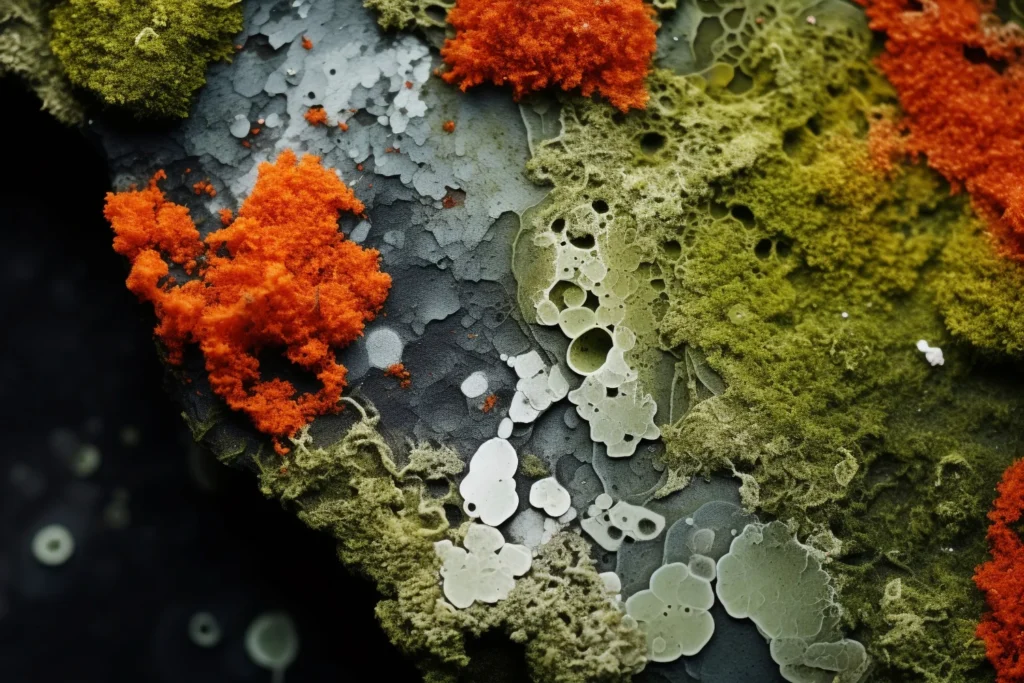Residential Mold Testing Services in Florida
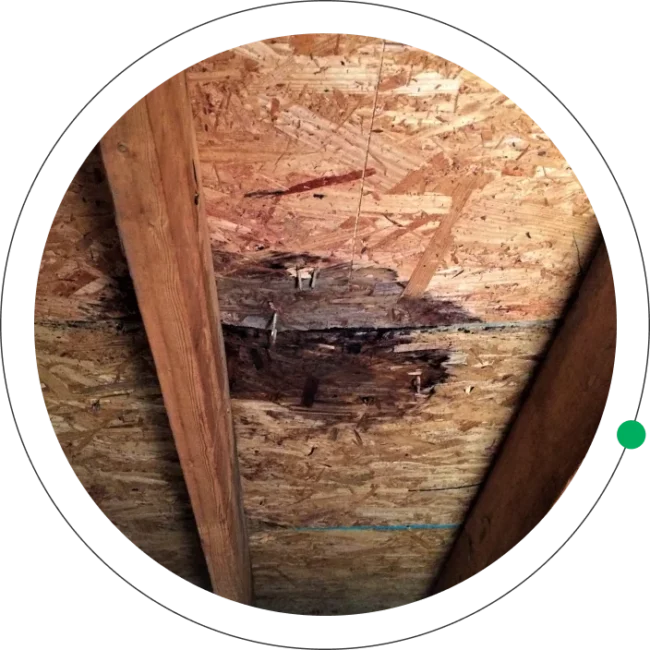
Why are houses a place prone to mold growth?
Residential properties are vulnerable to mold growth due to several common factors. Florida’s warm and humid climate makes it an ideal place for mold to grow. The state’s humidity often stays above 70%, which is perfect for mold to spread. Moisture from the air can easily get into your home through leaks, condensation, or poor ventilation.
Frequent rainfall and hurricanes contribute significantly to mold problems. Water damage from storms or flooding can leave moisture trapped in walls, floors, and other areas, which helps mold grow. Plus, because Florida is so hot, many homes use air conditioning systems that can increase indoor humidity if they’re not well maintained. If these systems don’t effectively remove moisture from the air, it can create more chances for mold to develop.
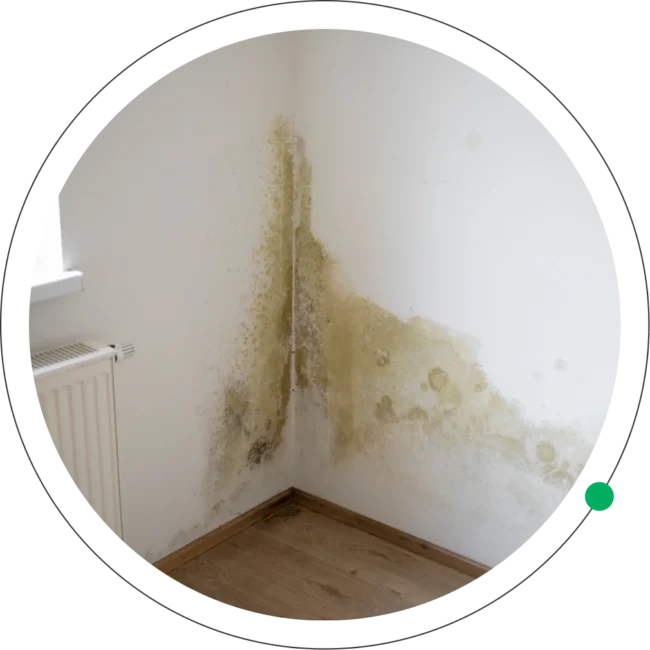
Common Signs That Indicate
Your Home Needs Mold Testing

Musty Odor
f certain areas of your home have a constant musty, earthy odor that doesn’t go away, even if you don’t see mold, it’s a good idea to get an inspection.

Visible Mold
If you notice mold anywhere in your home, whether it’s a small spot or a larger patch, that’s a sign moisture is present.

Water Stains
If you see stains or strange discoloration on your walls, ceilings, or floors, it could mean mold is growing behind the surface.

Peeling Wallpaper or Paint
f you notice paint bubbling, peeling, or strange stains on your walls or ceilings, it could be a sign that moisture is trapped inside, creating a space where mold can grow.

Condensation
Excess moisture on windows, pipes, or walls, especially during colder months.

Health Symptoms
f you or someone in your home is sneezing, coughing, or having itchy eyes and skin, mold could be causing these issues. These symptoms can get worse in rooms with hidden mold.

Deterioration of Materials
Softening wood, crumbling drywall, or deteriorating carpet that may indicate mold presence.
Tips to Identify Residential Mold
- Regularly inspect areas prone to dampness, such as bathrooms, kitchens, and basements.
- Check under sinks, around windows, and in attics for signs of mold or moisture.
- Be aware of any persistent earthy or musty odors, especially in typically damp areas.
- Note any unexplained increases in allergies or respiratory problems among residents, which could be symptoms of mold exposure.
- Examine fabrics, wood, and walls for unusual stains or discoloration, which can be a sign of mold.
- Look for condensation on windows, walls, and other surfaces.
- Consider hiring a mold inspector for an in-depth evaluation, especially if visual or smell tests suggest potential issues.
- Check past repair records for water damage or recurring moisture problems.
Regularly inspecting your residential and maintaining proper ventilation, insulation,
Regular maintenance, immediate attention to spills and leaks, and ensuring proper ventilation can help prevent mold growth in carpeted areas.
Preventing Residential MoldMold?
Essential Tips and the Role of Mold Testing
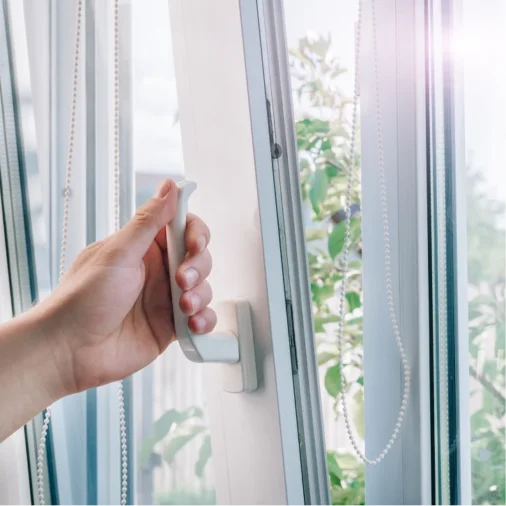
Ensure Proper Ventilation
- Utilize exhaust fans in bathrooms and kitchens and open windows regularly to improve air circulation.
- Ensure that clothes dryers vent outside the house.
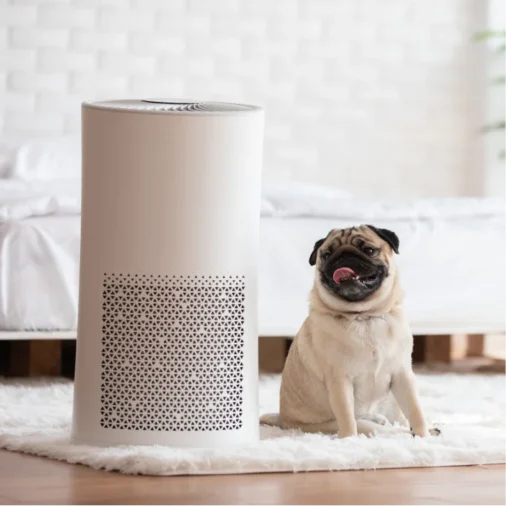
Moisture Control
- Fix leaky faucets, pipes, and roofs promptly to prevent moisture accumulation.
- Use dehumidifiers in particularly damp areas like basements.
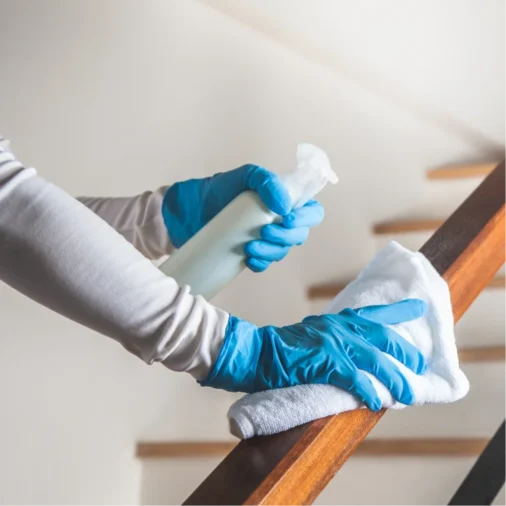
Regular Cleaning and Maintenance
- Clean and dry any wet areas immediately—don’t allow water to accumulate.
- Regularly clean gutters and downspouts to prevent water buildup around the foundation.
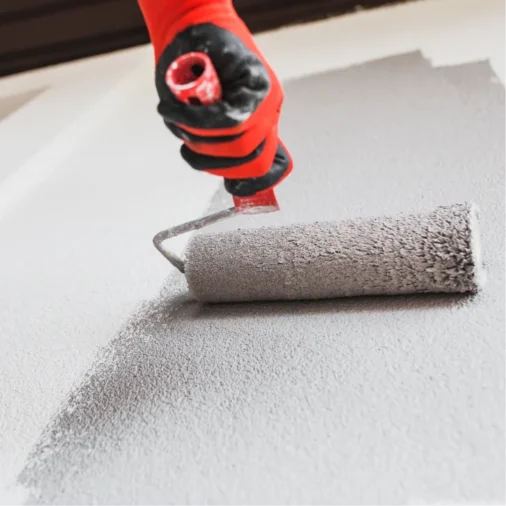
Use of Mold-Resistant Materials
- When renovating or repairing, use mold-resistant drywall, paints, and finishes especially in high-moisture areas.
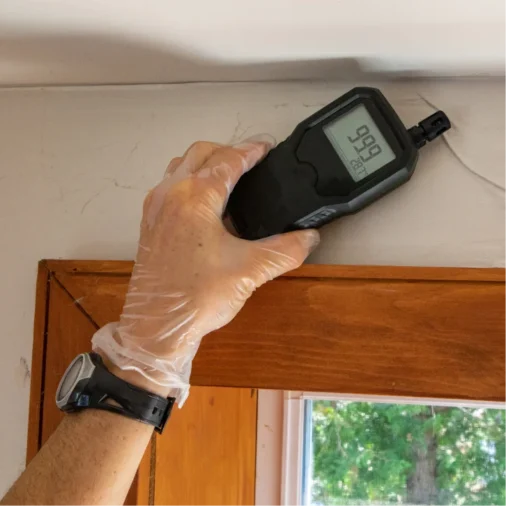
Routine Inspections
- Periodically inspect the home for signs of mold or moisture, especially after rainy seasons.
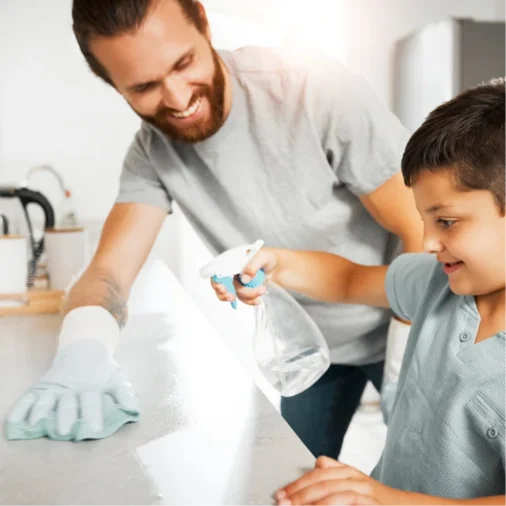
Educate Household Members
- Teach all family members about the importance of mold prevention and the steps to take if they notice signs of mold.
Choose ETA for Expert Mold Testing
Choosing ETA Mold for your residential mold inspection and testing in Florida means getting a team that genuinely cares. We thoroughly inspect every corner of your home, not just the visible mold. Our clear, honest reports make it easy to understand what we found and what steps to take next. With the latest tools and friendly, professional service, we deliver quick, reliable results without any pressure. Contact us today to schedule your inspection and start making your home healthier!
Professional Mold Inspection & Air
Quality Testing Services in South Florida.
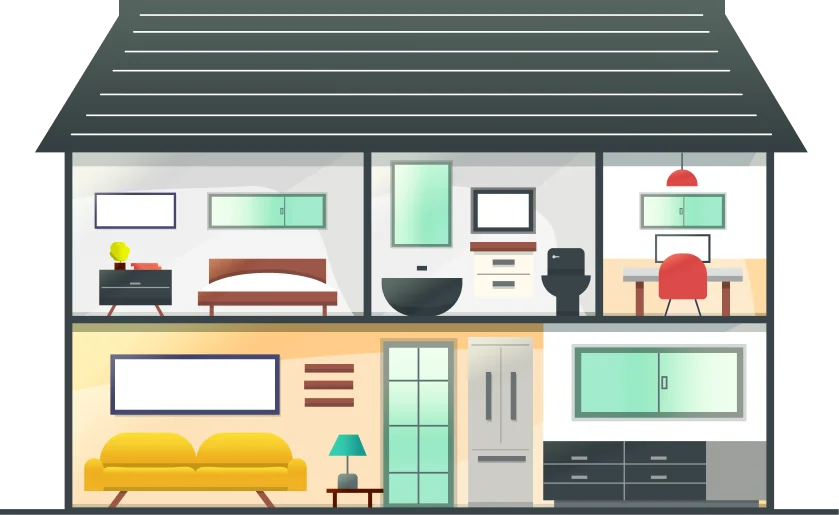
The Mold Inspection Process

DETECTION
We’ll discover the source of infrastructure damage. This is imperative and also the first step in our process.

TESTING
We send all samples to an accredited laboratory. Our labs know this is our priority and will give the most detailed results possible.

ASSESSMENT
Our certified and licensed assessors will compile a comprehensive report providing our documentation and lab analysis. All information comes with a scope of work.

Why Choose Environmental
Testing Agency?
Our team is comprised of industry-certified experts with extensive knowledge and experience in environmental testing. We utilize the latest technology and methodologies to ensure accurate and reliable results, making us leaders in the field.
Expertise
We are committed to providing exceptional customer service. Our team is responsive, thorough, and dedicated to assisting clients through every step of the testing process. We prioritize clear communication and tailored solutions to meet your specific needs.
Customer Service
Quality is at the core of everything we do. From rigorous testing procedures to detailed reporting, we ensure that all services meet the highest standards. Our commitment to quality helps clients make informed decisions based on dependable data.
Quality
Licensed, Certified,
and Insured Mold Inspection
and Air Quality Testing Company.

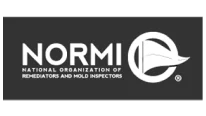



Before Booking an Air Quality Test
and Mold inspection Services
Receive $50 off!

Residential Mold FAQ’S
Residential mold is a type of fungus that grows inside homes, especially where there’s extra moisture. It can look black, green, or white and often grows in damp places like bathrooms, kitchens, and basements. Mold can affect the air you breathe and might cause health issues if not dealt with quickly.
Getting a mold inspection helps you find out if there’s mold in your home, how serious it is, and where it’s hiding. This way, you can take steps to fix the problem and avoid health issues and damage to your home.
You should think about getting a mold inspection if you spot any mold, have had water damage, or are buying or selling a home. For general upkeep, having an inspection every few years can help catch problems early.
A professional will look over your home, use tools to check moisture levels, and might take samples from the air, surfaces, or materials. These samples are tested in a lab to see if there’s mold and what type it is.
Most mold inspections take about 1 to 3 hours, depending on how big your home is and how thorough the inspection needs to be. This includes checking all potential problem areas and taking samples if necessary.
The cost of a mold inspection varies based on the size of your home and the extent of the inspection. On average, it’s between $200 and $500. It’s a good investment to keep your home safe and healthy.
If mold is found, the inspector will give you a report that explains what type of mold is present and how much there is. The report will also include suggestions for fixing the problem. It’s important to handle mold issues quickly to prevent further damage and health risks.
You can look for visible mold and check for moisture, but professional inspections are more thorough. Experts have the tools and knowledge to find hidden mold and accurately assess the situation.
To get ready, make sure the inspector can easily access all areas of your home, like basements, attics, and crawl spaces. It also helps to clear away any clutter that might get in the way.
Lab results for mold samples usually take a few days to a week. Once the results are ready, you’ll get a detailed report with the findings and recommendations.
Areas We Serve
In Florida
1. Miami Dade
- Coral Gables
- Coconut Grove
- Miami Beach
- Star, Palm & Hibiscus Island
- Key Biscayne
- Keystone Islands
- San Souci
- Miami Shores
- Pinecrest
- Brickel
- Bal Harbor
- Bay Harbor Islands
- Indian Creek
- Surfside
- Eastern Shores
- Sunny Isles
- Aventura
- Golden Isles
- Golden Beach
- The Roads
2. Broward
3.Palm Beach
- Royal Palm Beach
- Lake Worth
- Lantana
- Boca Raton
- Boynton Beach
- Manalapan
- Singer Island
- South Palm Beach
- North Palm Beach
- Tequesta
- Highland Beach
- Ocean Ridge
- Country Club Acres
1. Miami Dade
- Coral Gables
- Coconut Grove
- Miami Beach
- Star, Palm & Hibiscus Island
- Key Biscayne
- Keystone Islands
- San Souci
- Miami Shores
- Pinecrest
- Brickel
- Bal Harbor
- Bay Harbor Islands
- Indian Creek
- Surfside
- Eastern Shores
- Sunny Isles
- Aventura
- Golden Isles
- Golden Beach
- The Roads
2. Broward
- Bonaventure
- Hallandale
- Miramar
- Hillsboro Beach
- North Lauderdale
- Coconut Creek
- Hollywood
- Sea Ranch Lakes
- Oakland Park
- Sunrise
- Coral Springs
- Parkland
- Dania
- Lauderdale By The Sea
- Pembroke Park
- Tamarac
- Davie
- Pembroke Pines
- University Park
- Deerfield Beach
- Plantation
- Weston
- Fort Lauderdale
- Lighthouse Point
- Pompano Beach
- Wilton Manors
3. Palm Beach
- Royal Palm Beach
- Lake Worth
- Lantana
- Boca Raton
- Boynton Beach
- Manalapan
- Singer Island
- South Palm Beach
- North Palm Beach
- Tequesta
- Highland Beach
- Ocean Ridge
- Country Club Acres
- Jupiter
- Palm Beach
- Jupiter Inlet Colony
- Palm Beach Gardens
- Wellington
- Jupiter Island
- Palm Beach Shores
- Delray Beach
- Palm Springs
- Lake Clarke Shores
- Pelican Lake
- West Palm Beach

